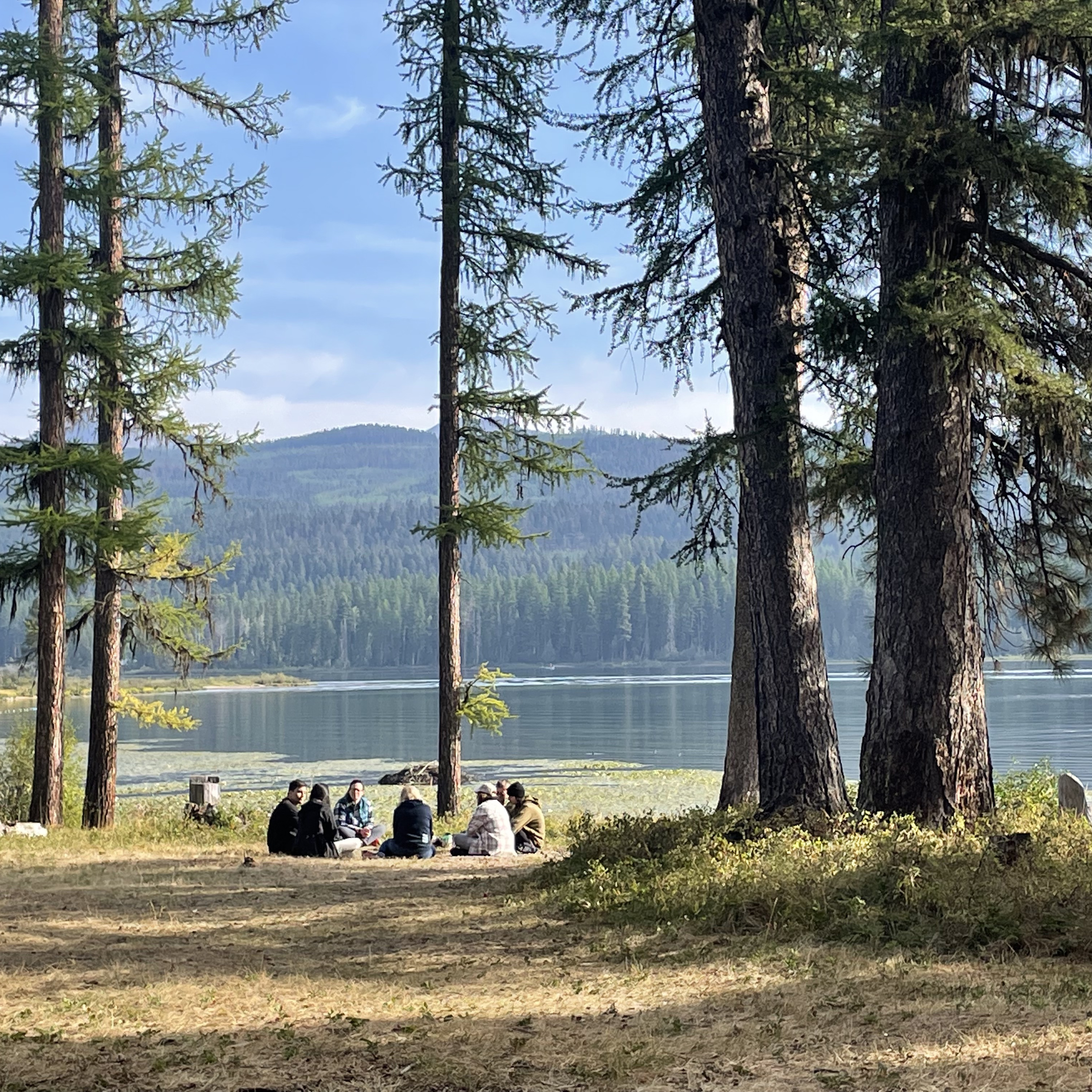Indigenous Knowledge & Environmental Sustainability
Indigenous Knowledge & Environmental Sustainability is a STEM focus area that concentrates on Indigenous knowledge, environmental sustainability & science, climate change, restoration ecology, ethnobotany, food systems and traditional ecological knowledge (TEK).
"We live in a time," writes Hawaiian scholar Noenoe Silva, "when many Indigenous peoples around the world are claiming our ancestors' languages, philosophies, and ways of life as worthy of our deepest attention. We are seeing anew how our connections to those ancestors and their/our lands provide bases... for the resurgence of Indigenous ways of life."
The Indigenous Knowledge & Environmental Sustainability focus area advisor works with students to select courses within Environmental Studies and across campus to learn how Indigenous peoples are moving toward revitalizing their communities, addressing climate change, restoring Native landscapes, returning to traditional food systems, reestablishing long held sustainable practices and strengthening traditional ecological knowledge.
Frequently Asked Questions
What is Indigenous Knowledge?
The United Nations defines Indigenous Knowledge as "the understandings, skills and philosophies developed by societies with long histories of interaction with their natural surroundings."
Why study and learn about Indigenous Knowledge & Environmental Sustainability?
A new report from the National Academies of Sciences, Engineering, and Medicine recommends that students interested in the environment, sustainability and climate change acquire a baseline understanding that includes "Indigenous knowledge & culture."
Can non-Indigenous students also study Indigenous Knowledge?
Yes, all students can, and should! If you plan to live and work in Montana or the West you will be living and working with Indigenous people. And learning about Indigenous Knowledge will engender an appreciation of Indigenous peoples' long-standing relationships with the natural world.
What kinds of classes does Environmental Studies teach?
Each semester Environmental Studies has one or more classes focused on Indigenous Knowledge & Environmental Sustainability (IKES). However, most of the classes in Environmental Studies address Indigenous environmental issues as part of the course. For current offerings, check with one of the IKES faculty advisors below.
Indigenous Knowledge Certificate
Indigenous Knowledge & Environmental Sustainability Certificate
Indigenous Knowledge & Environmental Sustainability Certificate is a new 12 credit certificate within Environmental Studies. There are two (2) required courses that provide an in-class experience & a hands-on experience, and two (2) elective courses (selected with advise of mentor) that focus on Indigenous Knowledge and Environmental Sustainability.
- Two (2) required courses:
- ENST 410 Traditional Ecological Knowledge of Indigenous Peoples, &
- ENSC 396 Supervised Internship: Native Plant Stewardship & Ethnobotany (or ENSC 398 Internship).
- Two (2) elective courses at the 400 level, selected with advice of mentor:
- ENSC (Environment Science) 400 level, and/or
- ENST (Environmental Studies) 400 level.
Our Indigenous Knowledge & Environmental Sustainability Certificate is currently not available for distance learning.
Internship
The Native Plant Stewardship & Ethnobotany Internship (ENSC 396/590) is a hands-on internship working outdoors with native plants and in UM’s Natural Areas, combined with academic work. Interns meet weekly with instructors, and work on campus on UM’s Natural Areas. Students will learn about ecology and conservation of Native plants and invasive species, landscaping with Native plants, restoring natural areas, stewardship and management of natural areas and the ethnobotany of Indigenous peoples.
Ethnobotany Garden
Ethnobotany Garden
The Ethnobotany Garden surrounding the University of Montana's Payne Family Native American Center is a living laboratory for students & the public. It is a managed landscape of Native plants important to the twelve tribes of Montana that helps mitigate climate change.
Natural Areas
The University of Montana has hundreds of acres of natural areas available for research, education and recreation. This includes 500 acres on the face of the iconic Mount Sentinel, and 100 acres on the banks of the Bitterroot River at Fort Missoula. These places are managed with the help of student interns primarily for conservation, restoration and climate change mitigation.
Faculty Mentor & Students
Rosalyn LaPier serves as the faculty mentor for the Indigenous Knowledge & Environmental Sustainablity certificate & focus area. She is an award winning Indigenous writer, ethnobotanist and environmental activist with a BA in physics and a PhD in environmental history. Dr. LaPier is an enrolled member of the Blackfeet Tribe of Montana and Métis. Hear her story on SACNAS Interviews STEM Role Model.
Rosalyn is on sabbatical from May 10, 2020-August 22, 2021.
Students & Alumni
Meet some of our Environmental Studies M.S. students: Brianna Ashley, Martin C. Mejia, Leanne Falcon, Georgia Grimm, Blair Libby, QJ Means, Winona Rachel, & Susan Teitelman. And learn more about the work of some of our alumni: Rose Bear Don't Walk, Tabby Espinoza, & Anne Grant.
